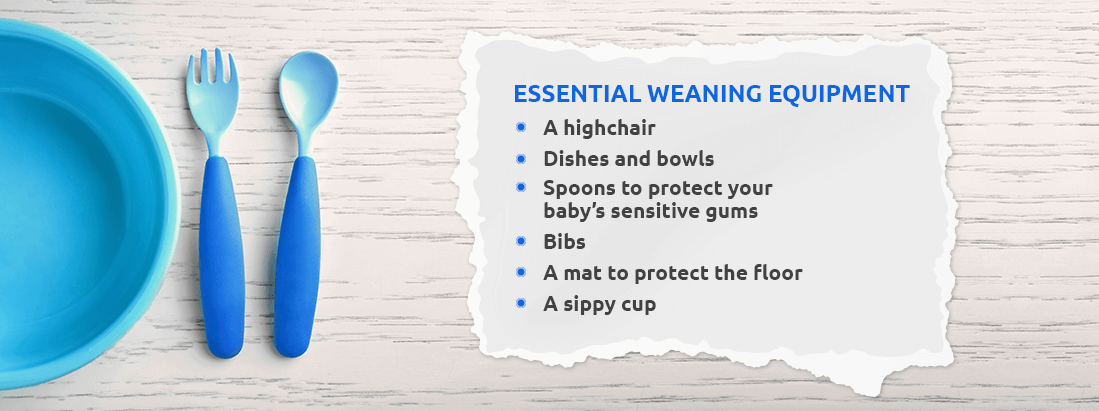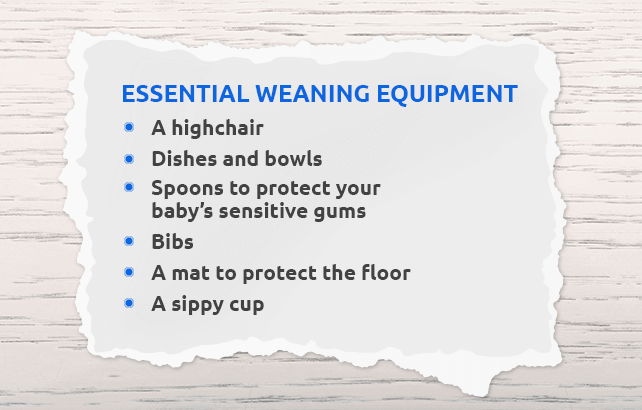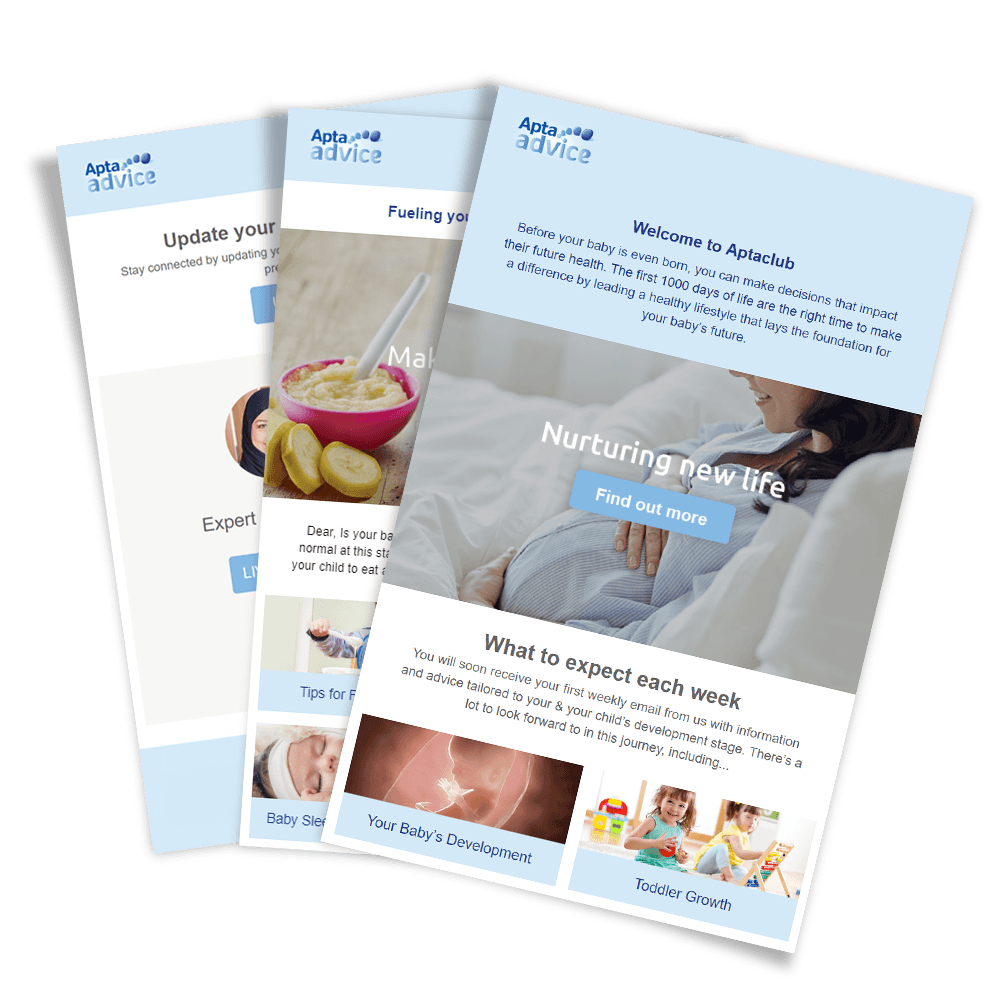Weaning: How To Start

Your baby is now ready to start eating solid food, but how do you start and how often should you feed your baby? We’ve put together a handy guide, which will tell you everything you need to know about the first steps of weaning.
Your little one’s ready to start weaning. He is showing all 3 signs and his hunger is increasing. We’ve put together a helpful guide on how to start, including what you’ll need in the kitchen to start preparing and feeding your baby.
What you’ll need to prepare the food ?
If you’re making your own baby food, you’ll need:
- A blender or food processor to puree the food
- Storage containers (preferably glass) for refrigerating and freezing foods (this can be very helpful if you need to serve food quickly)
What you’ll need to serve the food
You’ll find it helpful if you have the following things in your kitchen:


What foods should you start weaning with ?
Introduce solids gradually, one at a time. Offer your baby a new food over the course of three to five days before trying another new food. This way you’ll be able to tell if your baby has an allergic reaction to something. From around 6 months, your baby’s first foods can include the following:
- Grains and cereals like iron-fortified baby cereals, whole grain cereals and bread.
- Pureed vegetables like potato, sweet potato, green beans, peas, butternut squash and carrots.
- Soft fresh fruit like banana, avocado, papaya, cooked plums, peaches, pears, apricots, and apples.
- Once your baby is used to eating vegetables, fruit and cereal (plain rice) you should add other protein rich foods, such as puréed or mashed-up meat, fish and chicken, chickpeas, lentils or pulses, egg yolk, and full-fat pasteurized dairy products, such as plain yoghurt.
Keep an eye out for whether your baby exhibits any signs of being allergic to any of this new food, such as skin rashes, diarrhea, nausea, vomiting or swelling of the lips or tongue. If so, it is strongly recommended to consult your doctor immediately.
Foods you should not offer
Aside from the obvious sugary, salty and fatty or processed foods, try not to feed him foods that might cause allergies. High allergy-risk foods include eggs, cow’s milk, peanuts, tree nuts (like walnuts, Brazil nuts, and cashews), wheat, soy, fish and shellfish.
These foods can be introduced at a later stage, but not just yet. If there is a family history of food allergy, consult your doctor for advice on when to start your baby on these more-allergenic foods.
Have a family history of allergies? – Take this allergy risk assessment test to find out the possibilities of passing them on to your baby.
HABIT OF A LIFETIME
How he eats and what he eats now will leave a lasting impression on him throughout his adult life. At this early stage, the amount isn’t as important as the content. Every bite should be as healthy as possible.
Texture:
Begin with a smooth puree for the first few tastes. Your baby needs to learn how to move the food to the back of the mouth to swallow it. This may take a few days. Move on to thicker purees or well-mashed food as your baby becomes used to taking food from a spoon. Offer some soft finger foods as well – your baby can play with them and may suck them.
Meals:
Start by offering food once a day, half way through the milk feed. Once your baby is used to taking food, give him the meal before the milk feed. You can then increase to twice a day, and then three meals a day, providing different foods at each meal e.g.
- Baby cereal and fruit at breakfast
- Meat/pulses + potato/rice + vegetables at midday
- Yogurt and fruit in the evening
Drinks:
Your baby should continue with his/her milk feeds (Breast-feeding / Fortified formula milk). If you are bottle feeding, comfort sucking on a bottle can become a habit that’s hard to break. Introduce a sippy cup from six months and aim to have your baby off the bottle by their first birthday. Using an open cup, or a free-flow cup without a valve, will help your baby learn to sip and is better for your baby’s teeth.
Related Articles

Join Aptaclub
Get week-by-week updates on your baby’s development and your pregnancy. Receive expert advice, postal packs for your stage and much more

Monitor your child’s growth
Compare your child’s weight with other children their age
Need advice?
Our team of experts is ready to answer your questions and support you on your journey from pregnancy to toddler hood. For more information and relevant advice, please contact us between 9am-6pm from Sunday to Friday.




